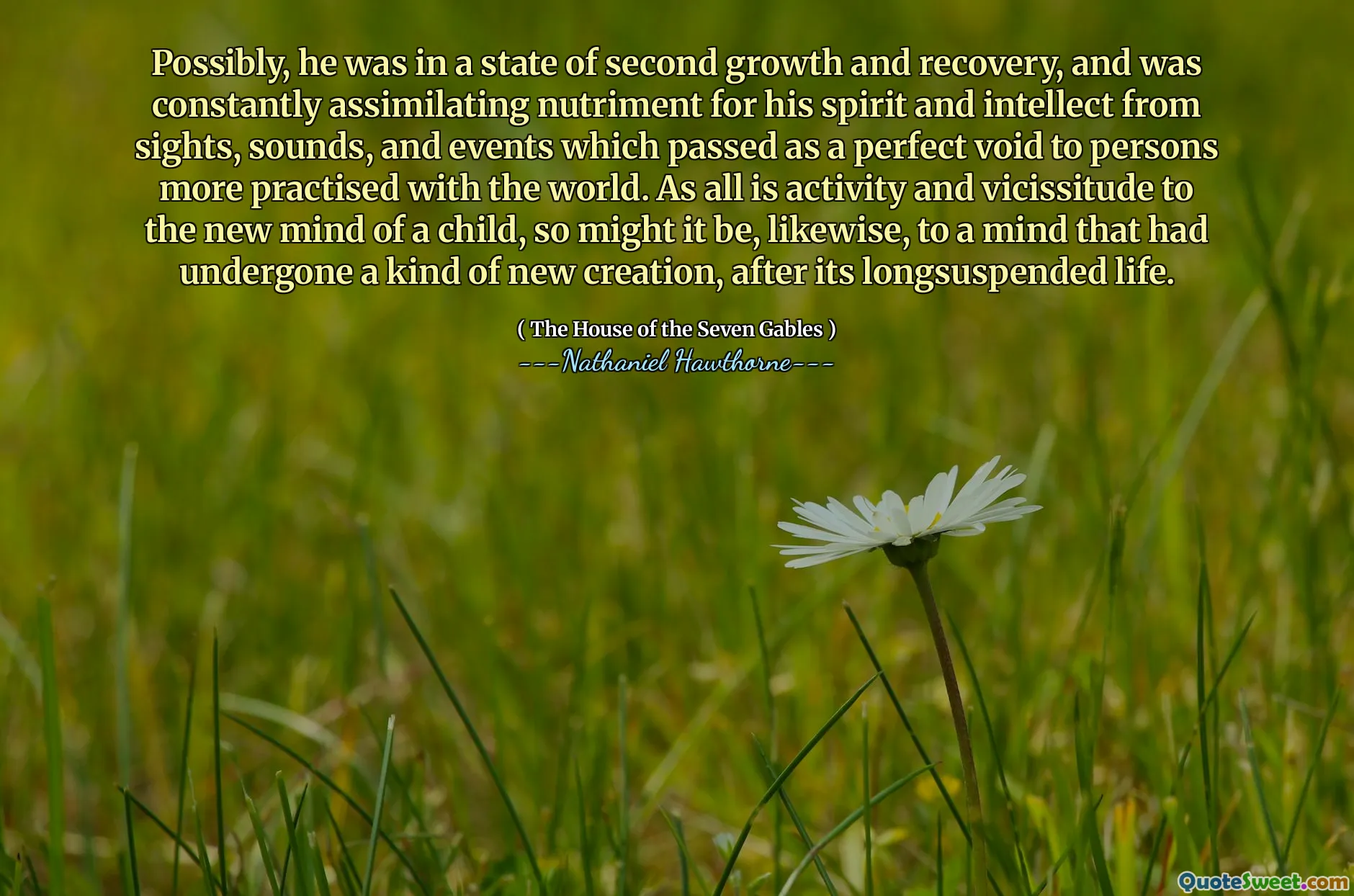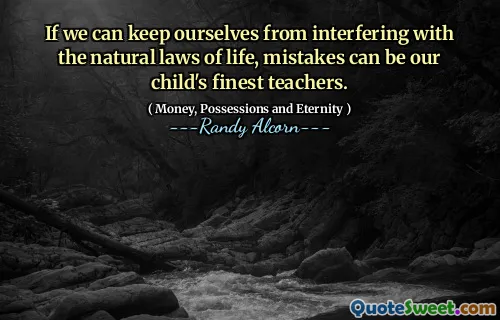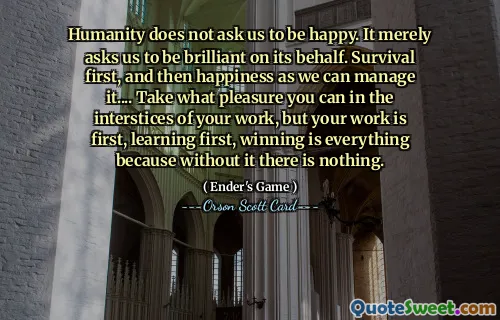
Possibly, he was in a state of second growth and recovery, and was constantly assimilating nutriment for his spirit and intellect from sights, sounds, and events which passed as a perfect void to persons more practised with the world. As all is activity and vicissitude to the new mind of a child, so might it be, likewise, to a mind that had undergone a kind of new creation, after its longsuspended life.
This passage from Nathaniel Hawthorne's "The House of the Seven Gables" delicately explores the profound process of renewal and intellectual rebirth. It evokes a comparison between the fresh perception of a child and a mind that has been revived after stagnation or dormancy. The idea that one can undergo a “second growth” emphasizes the human capacity for transformation, suggesting that the mind and spirit are not static but can explore new dimensions and extract meaning from what might ordinarily be overlooked.
The metaphor of "assimilating nutriment" from surroundings to feed the spirit and intellect portrays learning and recovery as an organic process. Further, the depiction of everyday sights and sounds as laden with subtle nourishment for a renewed mind highlights the beauty of sensitivity and attentiveness to the world. It contrasts this with the desensitized perspective of those "more practised with the world" who might pass these same stimuli by as insignificant. This reflects a valuable philosophical view: that openness and a fresh outlook on life, even after trials, can reveal richness that others might miss.
Ultimately, this quote reminds us that personal growth involves not just outward change but a profound inward awakening, akin to a new creation. It invites reflection on how experiences of regeneration can inspire a renewed appreciation of life’s intricacies and a deeper engagement with the world. Hawthorne's eloquent metaphor thus beautifully honors the resilience and potential for renewal inherent in the human spirit.



